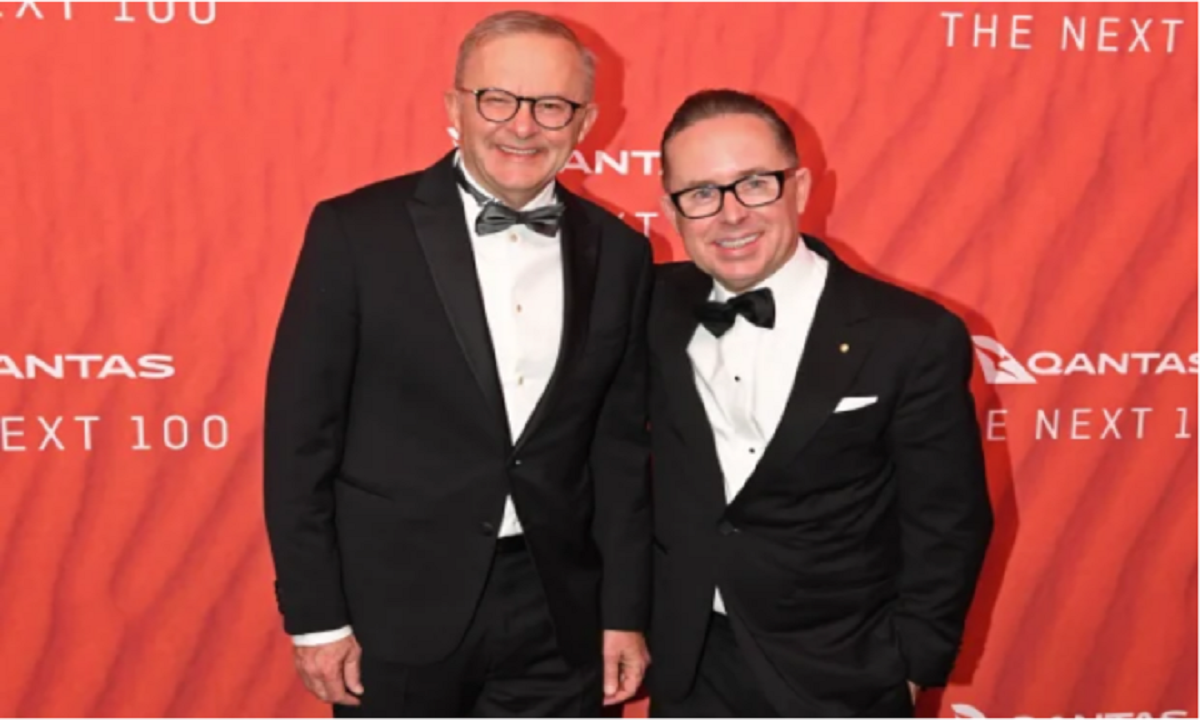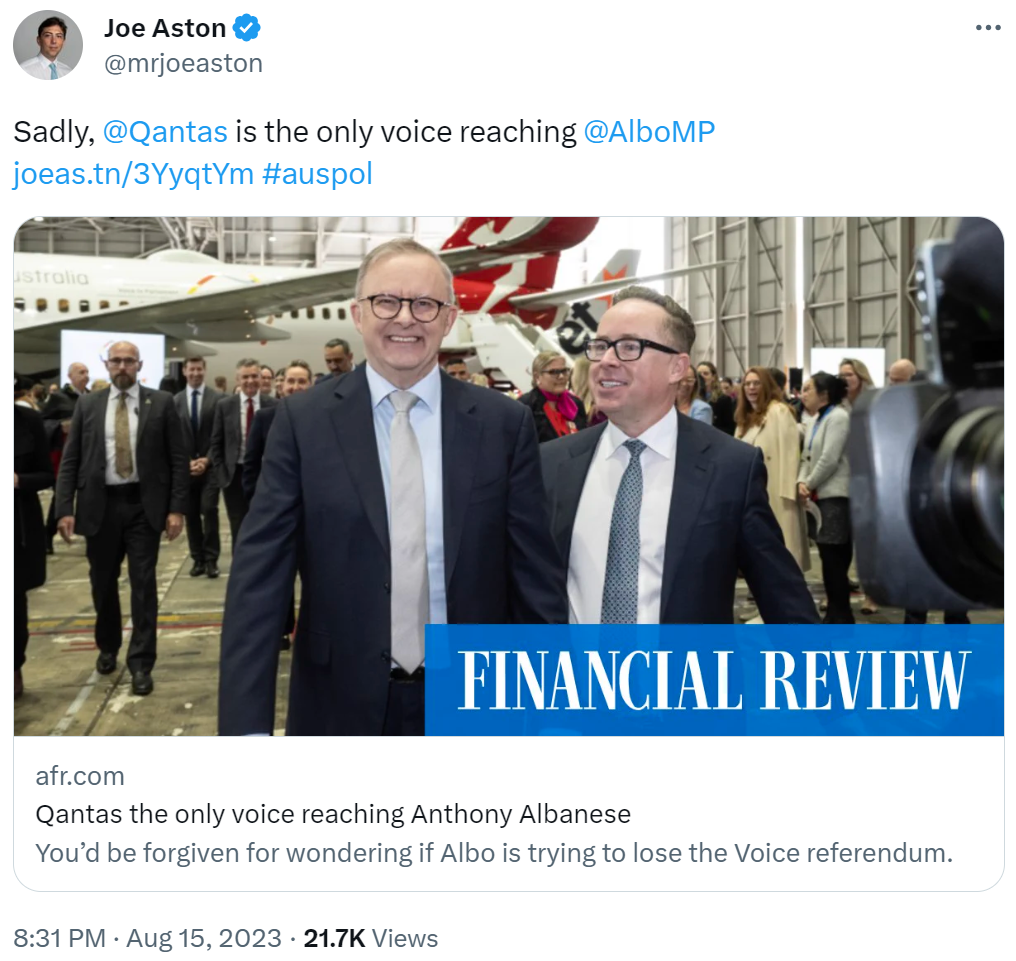The Albanese Government last week announced a fresh two-year review aimed at kick-starting a new wave of competition reform to boost economic dynamism, promote productivity increases and lift wage growth.
The review has emerged amid concerns that big business is using its market power to crush competitors and bolster profits. It will be managed by the Australian Treasury with its member panel including former ACCC czar Rod Simms.
The announcement came as Qantas reported a record profit with record margins by increasing fares and cutting costs:

It also followed Infrastructure Minister, Catherine King’s decision to decline Qatar Airways’ bid to double its flights to Australia, despite estimates that it would have produced an additional $500 million in tourism revenue and thousands of jobs.
Qantas was the principal opponent of Qatar Airways’ bid and leveraged its political muscle to pressure the Albanese Government to block the application.
The tourism and aviation industries both contested King’s contention that the additional flights were not in Australia’s “national interest” and would have resulted in fewer jobs for Australians.
On Monday, Assistant Treasurer Stephen Jones said that Qantas’ record profit was “a good news story”, and defended the federal government’s decision to shield the carrier from competition:
“We can drive prices down but if we drive them down to a level where it’s actually unsustainable to run an airline, instead of having two carriers we will design our markets in a way which will make it unsustainable for the existing Australian-based carrier”.
“We have a viable [airline] industry in Australia, and we always want to ensure we’re doing things to drive down the cost of airline tickets,” he said. “But we want to ensure that they do that in a way that doesn’t destroy the industry over the medium and long term”.
Thus, the Albanese Government believes in competition and economic dynamism, but only when it doesn’t involve its mates.
It was discovered earlier this month that Prime Minister Anthony Albanese’s 23-year-old son was granted membership to the exclusive Qantas Chairman’s Lounge, which provides him with free flight upgrades and unlimited champagne.
When asked about it, Qantas CEO Alan Joyce just stated, “I’ve been good mates with Albo for some time”.

Albo and Qantas CEO, Joyce, are “good mates”.
Then, Joyce posed with his good mate Albo to announce that three Qantas planes had been repainted “Yes23” to support The Voice: Australia:

“There is no company in Australia that immediately says Australia like this brand of Qantas”, Albo said alongside Joyce.
The hypocrisy is palpable. Labor says it wants a competitive Australian economy and is preparing a review to crack down on monopolies and duopolies that use market power to gouge consumers.
Yet, here it is actively running a protection racket for a greedy airline that is costing Australians a small fortune in fares, offers poor service, and is wrecking economic dynamism and productivity.
Qantas was the most complained-about company in Australia in 2022 and 2023, largely because of its flight credits. It is sitting on around $500 million worth of flight credits that will expire at the end of the year and revert to profits.
Its handling of flight credits is now the subject of a class action lawsuit.
Qantas is a textbook example of crony capitalism in action.
The airline’s business model is centred on leveraging governments to get what it wants.
Instead of kowtowing to Qantas’ demands, the federal government should force competition by liberalising the passenger aircraft industry through an open-skies agreement.
Sadly, that would take actual political courage, would require Albo to go against his good mate, and would require politicians to give up their freebies like Chairman’s Lounge access.
After years of corruption under the former Coalition government, we are experiencing similar malfeasance under Labor.

